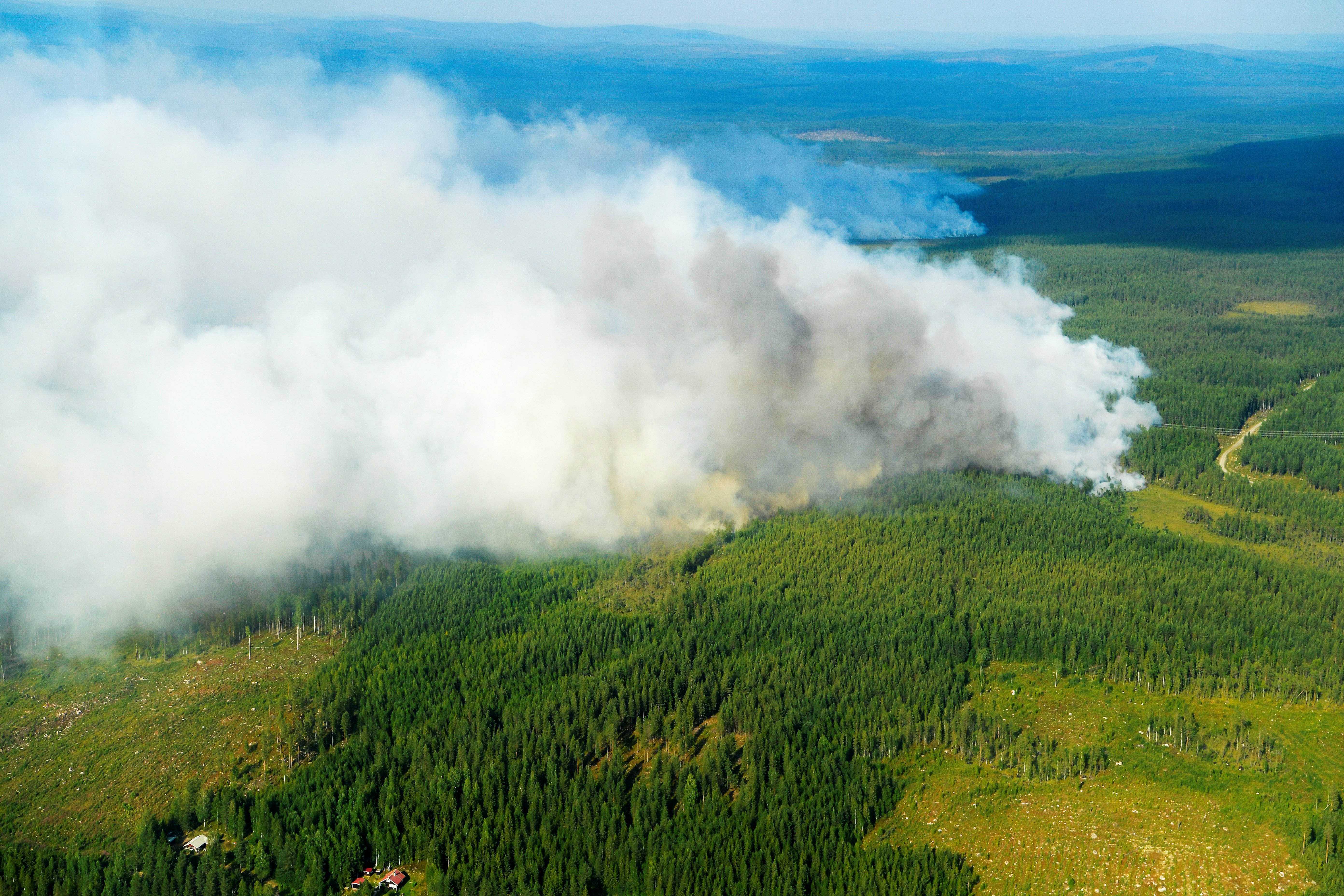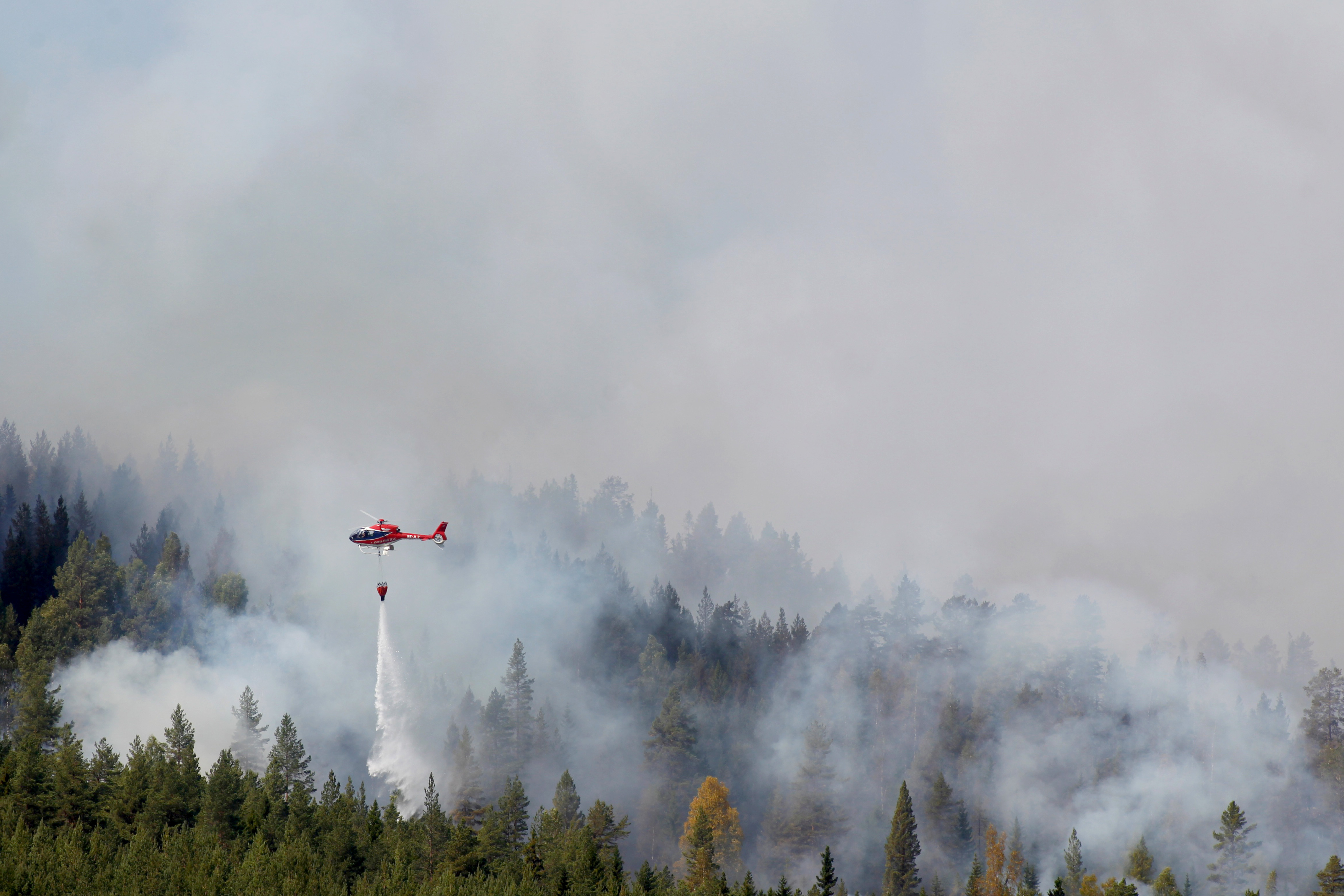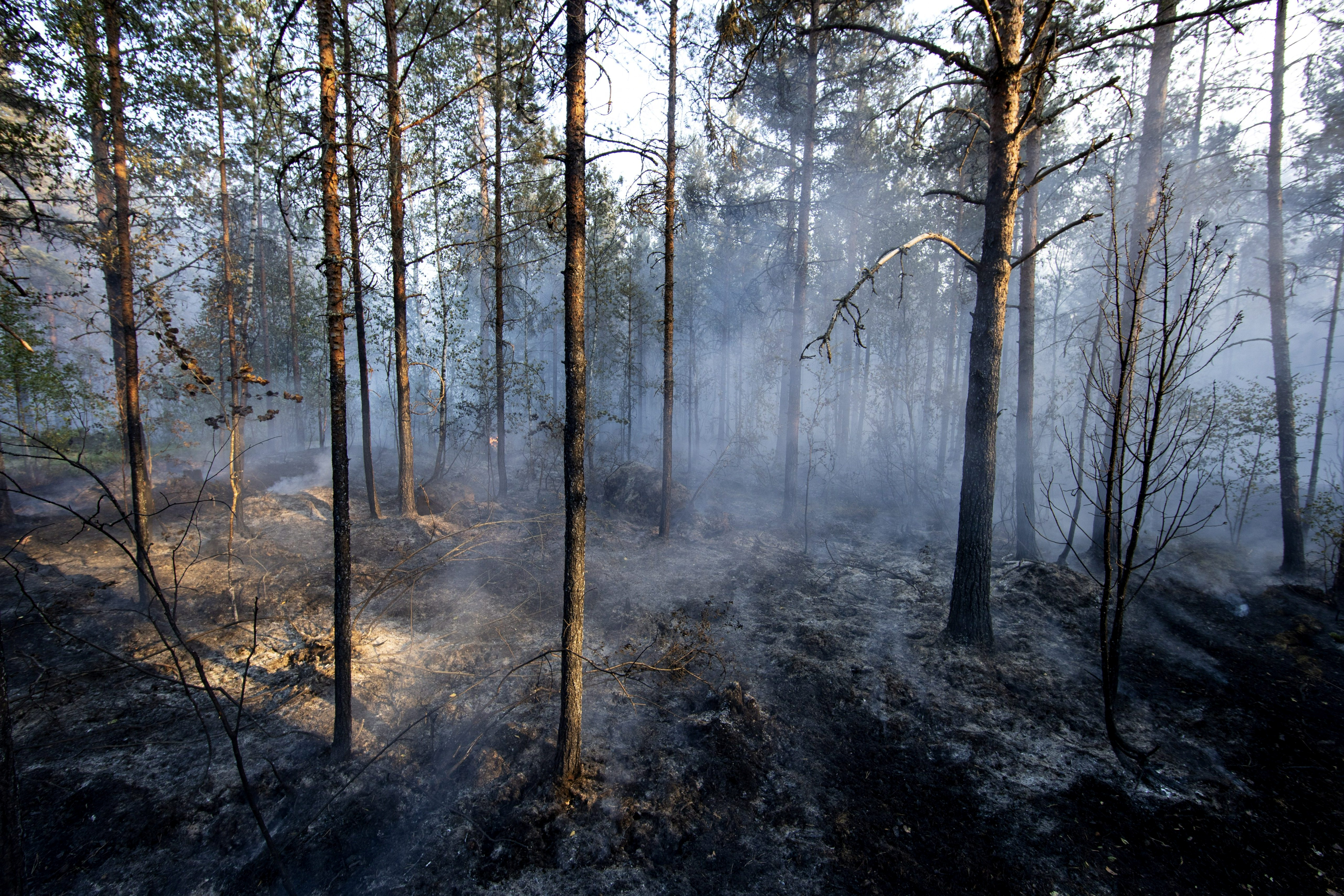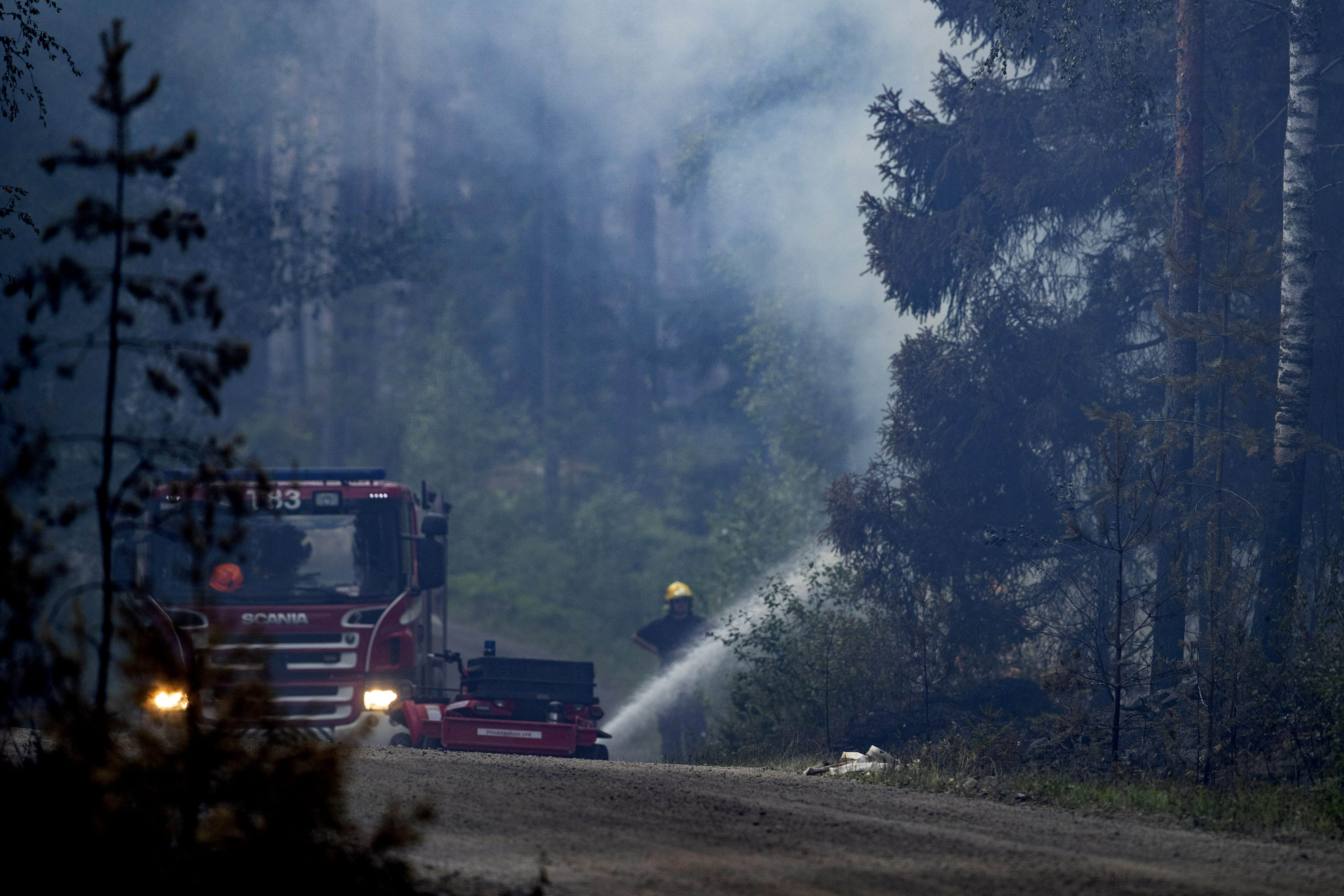Wildfires are burning through Northern Europe, including in the Arctic
Sweden has asked EU partners for help to battle the high number of wildfires scattered throughout the country.
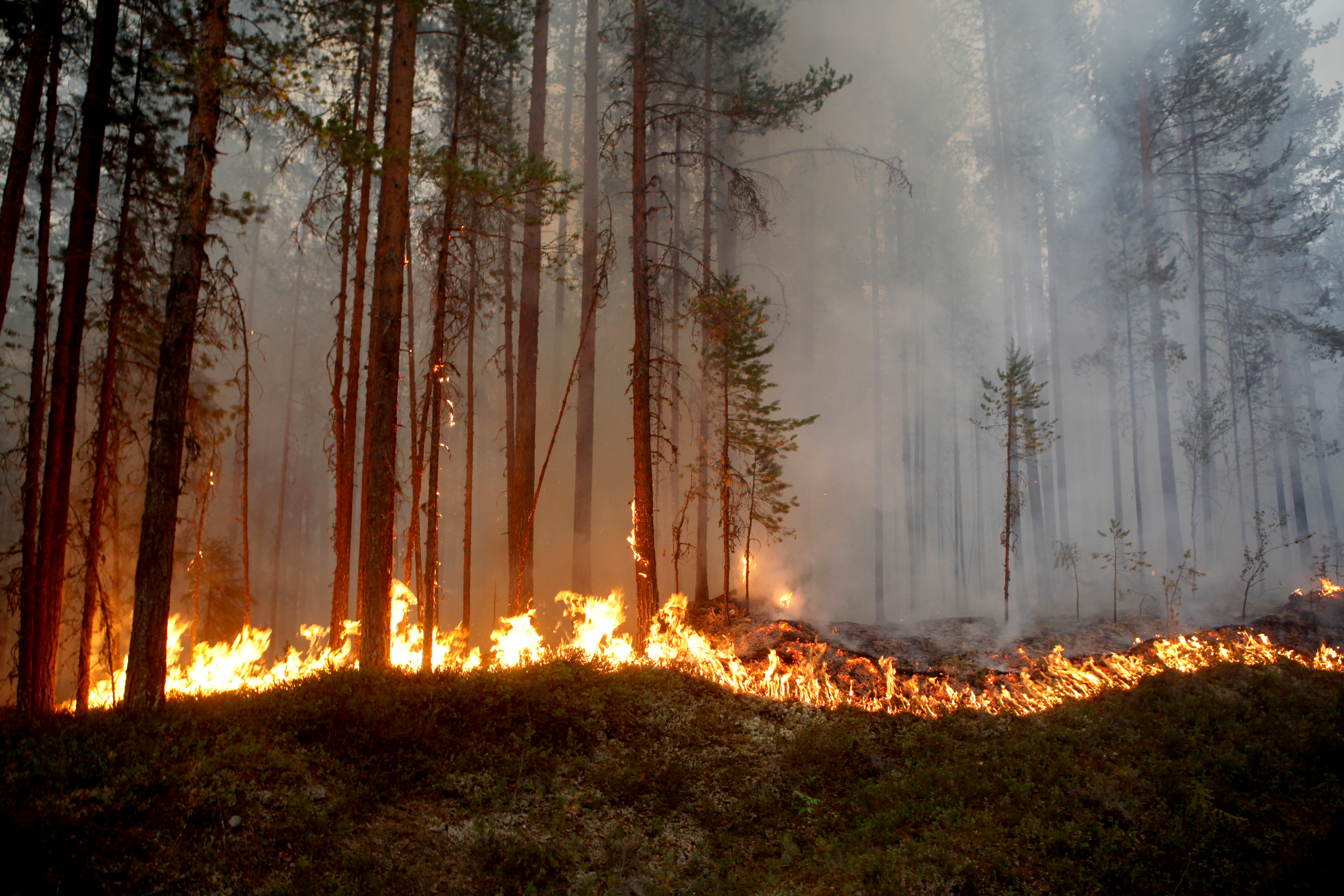
After a period of hot weather and drought, fires have broken out in Northern Europe, including inside the Arctic Circle, prompting calls for help from Sweden.
According to the BBC, Sweden was experiencing more than 40 fires on Wednesday afternoon, scattered from Lapland to the southern island of Gotland. The high number of wildfires has caused evacuations in the country and calls for firefighters on holiday to return to service. Thousands of people have been told to stay inside and rail services have been delayed.
Both Italy and Norway have dispatched emergency assistance to help battle the fires in Sweden, reports the BBC, including 13 people and two “waterbombers” from Italy and 10 helicopters from Norway.
“This is definitely the worst year in recent times for forest fires. Whilst we get them every year, 2018 is shaping up to be excessive,” said Mike Peacock, a university researcher and local Swedish resident, told The Guardian.
Sweden isn’t the only Arctic state experiencing fires. Norway, Russia and Finland have also reported wildfires, according to The Guardian, and at least 11 fires are located inside the Arctic Circle.
While many of the wildfires in Sweden have been attributed to human negligence from cigarette butts and grills, more wildfires in the Arctic are expected to be sparked by lightning as the region warms. These types of events used to be relatively rare in the Arctic.
Last year, a NASA study looking at large fires caused by lightning strikes in Canada’s Northwest Territories and Interior Alaska found that these kinds of fires have risen 2 to 5 percent each year since 1975. In a 2014 article, scientists found that every degree Celsius of warming will lead to a 12 percent increase in lightning strikes.
Record high temperatures were recorded around the world just last week, including northern Russia, northwest England and much of Eurasia. The heat contributed to wildfires in Russia that affected close to 198,000 acres in the country.
